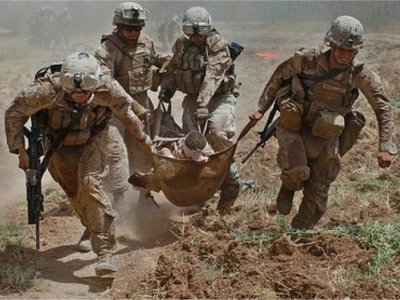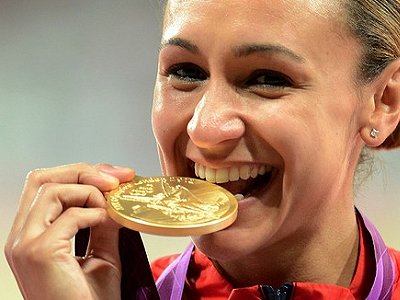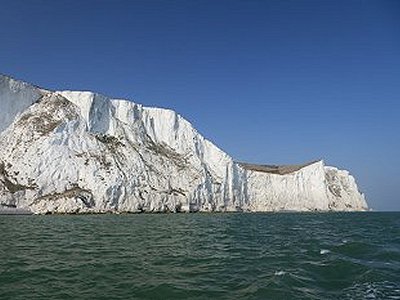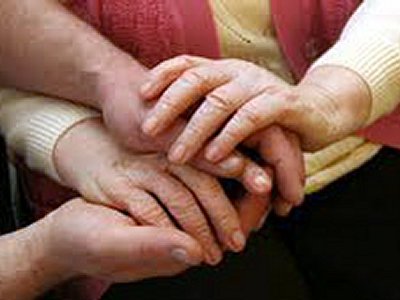
THE OLD NEW LANDSCAPE OF WAR
It is hard to recall how optimistic everything looked at the start of this century. The tech revolution was erupting; the Cold War was over and a decade of democratisation, especially in Eastern Europe, was shining through. The Prime Minister, Tony Blair, had just outlined a doctrine of the international community, setting out criteria under which it would be legitimate to intervene militarily in other countries to protect their populations even when there was no threat to other nations. Globalisation was presented as an opportunity and not a threat.
You don’t need a history lesson in what came next. It’s common to say that the new century really began on 9/11 because so much can subsequently be traced to that awful day, but perhaps we will look back and say the new century actually began a day early. December 31, 1999 to be precise. When Boris Yeltsin unexpectedly resigned and appointed the newish Prime Minister, Vladimir Putin, as acting President of Russia.
On Remembrance Sunday, it is our duty and privilege to recall with gratitude the men and the women who have given their lives in defence of our nation. Around us, the veterans of the Second World War are dying in the kinds of numbers once reserved for those who fought in the Great War. Their time has come, and it adds such poignancy to Remembrance Sunday to see their numbers decline rapidly year on year now. We watch them, sometimes stooped and infirm, turn up to remember those who didn’t make it through. Those who survived and those who didn’t were astonishingly young when they fought, often performing heroic acts of sacrifice when barely out of their teens. It is rare for people so young to shape the destiny of a nation, but that generation did. And we will always be thankful.
But we are also here to remember conflicts that get less attention. There are veterans of wars on the Korean peninsula, the Falklands, Afghanistan, Iraq. From operations in Malaya, Cyprus, the Balkans. And there will be more. Some conflicts may be less well known, or ones where the public is more ambivalent about the political goals, but the duty of the armed services is to go where they are sent and to fight whom they are told. They do this in defence of the rest of us. And for them we are grateful too.
There is, perhaps, an edginess about this year’s commemoration that wasn’t present last year. Yes, there has been a frozen war in eastern Ukraine for several years, but the sight of one nation invading another nation in continental Europe with tanks and soldiers, aircraft and missiles, is not just shocking; it triggers something deep in our collective psyche about the twentieth century. And the aggressor, indiscriminate and wanton in its conventional acts of destruction, has nuclear weapons at its disposal too.
History didn’t end with the twentieth century – most people never bought into that thesis. But we didn’t imagine it would return so suddenly to the brutal politics of expansionism. I am not a historian or a politician, but I want to make two simple points before I engage with some spiritual realities. The penny needs to drop for many of us that we should take despotic leaders at their word, rather than filtering their speeches through our own peaceable and democratic instincts.
The other point is about western democracy. We want it and we will fight for it if we need to. But we need to renew it presently, because it has become so brittle over the last decade and its fragility has been tested by some who have little real instinct for democracy. Getting this renewal right is vital for our well-being and for dealing with external threats. And it is a shared duty across society. By definition, if we want to refresh our common life, we each have a role to play in it.
And there are three things to say about spiritual renewal, too.
Firstly, truth exists. That shouldn’t have to be stated, but today some people are stirring a cynical post-modern stew that mixes truth and falsehood until you can no longer taste truth in the mix. When truth is deposed, the powerful take its place and the most vulnerable lose out. We celebrate those who speak truth to power. In the world today, some are speaking power to truth and are drowning truth out. Jesus said, I am the truth. When we stand for this, telling honest stories about our own lives and not self-serving fibs, we make an act of godly defiance.
Secondly, God is sovereign over the nations. Churches often sing the chorus: Be still and know that I am God. It’s taken from Psalm 46 and actually these words are God speaking to the countries of the world: I am exalted among the nations, he says. God cannot be co-opted by a nation, domesticated and made to speak for it. To do so is to make the Lord an idol, no more than a tribal god and not the one before whom all shall one day bow the knee.
God is ruler of all, and those who trust in Christ believe there is a coming kingdom of justice and of peace. It is a bumpy ride holding on to this treasured belief. But it has always been so. Many of those who lived through and fought in that darkest of wars between 1939 and 1945 did so clinging on to the hope of the kingdom of God. And this is what we do today. Giving heartfelt thanks for the sacrifices of many people. And worshipping the one whose own sacrifice on a Friday and resurrection on a Sunday alone offers the hope that one day, all creation shall be healed.





